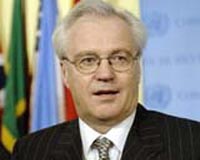| . |  |
. |
Tongilchon, South Korea (AFP) June 4, 2009 Cho Suk-Haan clambers into his tractor and fires up the engine to go to work in rice fields just a short distance away from the most heavily militarised border in the world. On the other side of the last remaining Cold War frontier lurks North Korea's 1.1 million-strong army, equipped with hundreds of missiles, thousands of artillery pieces -- and engineers trying to perfect a nuclear bomb. The residents of Tongilchon, just south of the Demilitarised Zone (DMZ) that separates the two Koreas, are used to Kim Jong-Il's threats and brinkmanship, but still feel uneasy about the recent escalation in tensions. "The news about North Korea's missiles and nuclear tests make me nervous," said the 65-year-old Cho, who farms rice and ginseng. His father, who would now be more than 100 years old, was living in the North but Cho has lost contact with his relatives across the border, like thousands of other families separated by the division of the peninsula. "In front of the world I feel ashamed," he told AFP. "Why should we live like this? I think we, as one nation, should live in peace and harmony." In Tongilchon -- which means "unification village" in Korean -- there is a feeling of weary resignation about the North's weapons development. "I thought everything would be quiet, then I heard they were making nuclear bombs and this makes me very nervous," said Lee Yun-Hee, a 72-year-old shopkeeper. "I'm not happy with what's going on, but what can I do about it?" The villagers of Tongilchon, about 50 kilometres (31 miles) north of Seoul, are offered financial and other support by the Seoul government to stay. Civilian access is restricted although thousands of tourists pass by each year on organised excursions to catch a glimpse from the southern side of Kim Jong-Il's hermit state. Tensions along the border have risen since the North tested a nuclear bomb on May 25 and threatened to attack the South. For now, however, life goes on as normal for the villagers, some of whom see the North Koreans' bellicose language as little more than bluff and bluster. "I think North Korea is staging a sort of public circus and there is little possibility of war breaking out," said 44-year-old Lee Young-Yong, taking a break from his work rearranging large pots filled with fermenting soy beans. Lee hopes that one day the two Koreas will be one again, saying: "I'm yearning for it." But prospects for reunification seem ever more distant. Relations have soured since conservative President Lee Myung-Bak took office in Seoul last year, ending a policy of virtually unconditional aid to the North. South Korean and US forces on the peninsula are now on heightened alert, including at the nearby village of Panmunjom inside the Joint Security Area, where the truce that ended the Korean War was signed in 1953. There have been deadly clashes in the past in the DMZ, including the infamous axe incident in 1976, when two US soldiers were killed by North Korean troops in the Joint Security Area after trying to prune a poplar tree. "The possibility of armed provocation from the northern side is higher than ever," Corporal Yoo Hyun-Woo told a visiting tour this week. "So please do not point or make any gestures toward the North Koreans." Despite its name, the approaches to the DMZ -- which extends two kilometres each side of the border drawn after the 1950-1953 war -- are heavily fortified with barbed wire, minefields and tank traps. There are 680,000 South Korean troops and 28,500 US soldiers on the peninsula, facing the world's fourth largest military force in the North. But many experts doubt Kim Jong-Il's isolated regime will risk its own survival with a brazen military strike on the South. "I don't think North Korea will commit suicide," said Professor Kim Yong-Hyun at Seoul's Dongguk University.
Share This Article With Planet Earth
Related Links Learn about nuclear weapons doctrine and defense at SpaceWar.com Learn about missile defense at SpaceWar.com All about missiles at SpaceWar.com Learn about the Superpowers of the 21st Century at SpaceWar.com
 UN NKorea resolution won't include embargoes: Russia
UN NKorea resolution won't include embargoes: RussiaMoscow (AFP) June 3, 2009 The UN Security Council resolution expected to be adopted after North Korea's nuclear test should not include any "economic embargoes" against Pyongyang, Russia's UN envoy said Wednesday. "Our task is that the introduction of economic embargoes against North Korea not be included in this resolution," Vitaly Churkin told reporters in a video conference from New York. North Korea's nuclear ... read more |
|
| The content herein, unless otherwise known to be public domain, are Copyright 1995-2009 - SpaceDaily. AFP and UPI Wire Stories are copyright Agence France-Presse and United Press International. ESA Portal Reports are copyright European Space Agency. All NASA sourced material is public domain. Additional copyrights may apply in whole or part to other bona fide parties. Advertising does not imply endorsement,agreement or approval of any opinions, statements or information provided by SpaceDaily on any Web page published or hosted by SpaceDaily. Privacy Statement |